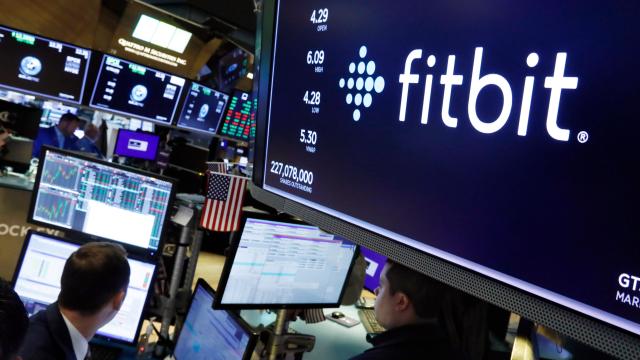Google’s $US2.1 ($3) billion deal to acquire fitness tracker manufacturer Fitbit has attracted the scrutiny of antitrust enforcers at the U.S. Department of Justice, according to reports that first emerged in the New York Post tabloid and were subsequently verified by Reuters.
The U.S. Department of Justice Antitrust Division has already launched a competition probe into Google (as have attorneys general in 50 U.S. states and territories) as part of a broader federal review of the tech industry. According to the Post, a source said the DOJ and the U.S. Federal Trade Commission, which also has federal antitrust authority, engaged in an “arm wrestle” over who would review the acquisition.
What ultimately ends up happening could be an early sign of where the Google probe is heading; U.S. Attorney General Bill Barr recently said that he hopes the federal tech inquiries will be completed next year.
It wasn’t immediately clear what the focus of the Fitbit probe is. The deal could give Google a much-needed boost in the wearables market, which is currently dominated by competitors like Apple and Samsung. But Google is in the big data and internet advertising business.
That’s made privacy advocates wary that the acquisition could give it access to a wealth of health data on Fitbit’s users, promises by the company that it would never sell Fitbit data notwithstanding. DOJ antitrust chief Makan Delrahim suggested shortly after the Fitbit merger was revealed in November that data and privacy could become big anticompetition concerns, as they can greatly affect the shaping of market power.
Per Wired, Google not only pursued the Fitbit deal while it was facing multiple antitrust inquiries, but announced it mere days before it came to light that Google had partnered with health systems company Ascension on “Project Nightingale.” That endeavour allowed Google to access significant, non-anonymised health data on what is likely tens of millions of Ascension patients including names, diagnoses, lab results, birth dates, and more, all without notifying the patients or doctors involved.
Project Nightingale triggered a federal inquiry into whether it violated the Health Insurance Portability and Accountability Act (HIPAA). Google is also facing another lawsuit over a data-sharing project with the University of Chicago Medical Centre that ran from 2009 to 2016.
“What I’m telling my students is, this is a great test case,” University of Tennessee College of Law professor and former DOJ antitrust official Maurice Stucke told Wired. “The agencies say they’re concerned about these data-opolies. They’re going to scrutinize their data-driven acquisition of these smaller firms. Here you have this established firm that’s already established a significant treasure trove of personal data. So, is anything going to change.”
Stucke added that one possible way the feds could change their handling of these situations is by treating claims that data will remain private after mergers as critically as they do claims that prices won’t rise. Antitrust officials would “routinely reject” such promises as unenforceable, Stuck said.
Meanwhile, Google and its subsidiaries like YouTube have repeatedly been fined for playing fast and loose with user privacy promises, and it made similar assurances that didn’t pan out when it acquired Nest in 2014 and later migrated user accounts into the centralised Google ecosystem. (In what is perhaps not the most encouraging sign that the DOJ will take effective action, Wired noted one meta-analysis by economist John Kwoka has found U.S. antitrust officials have already done poorly at preventing price increases after mergers.)
Nonprofits including the Open Markets Institute, Public Citizen, and Electronic Privacy Information Centre have all urged U.S. antitrust authorities to block Google from taking over Fitbit.
“Google should not gain control of Fitbit’s sensitive and individualised health data that can be integrated with data from its current services to entrench its monopoly power,” the groups wrote in a letter, per the Irish Times. “Through its vast portfolio of internet services, Google knows more about us than any other company, and it should not be allowed to add yet another way to track our every move.”
